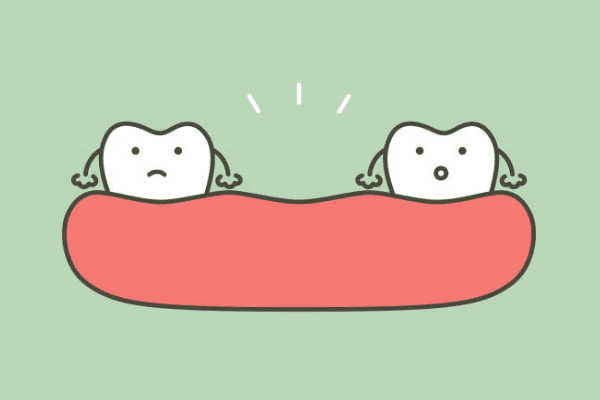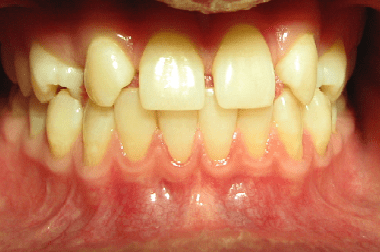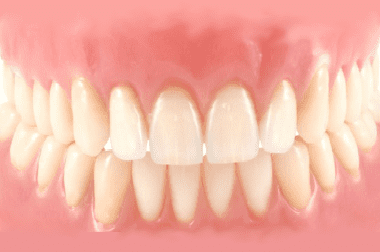Dentistry >>>> Adentia
Adentia.

The absence of teeth (complete or partial) is called adentia. The term "adentia" is used most often in cases where the teeth have not erupted as a result of not formed tooth germs. Such adentia is called primary. Primary adentia is considered as a pathological condition, the etiology of which is not clear enough. Primary adentia is diagnosed by performing an X-ray of the dentition and examining the condition of the tissues for the presence of dental germs.
Partial primary adentia can cause deformation of the dentition, due to the fact that the erupted teeth will occupy the location of the missing teeth, distorting the physiologically correct structure of the dental arch. Deformation of the dental arch will lead to malocclusion.
There is a secondary adentia , when the death of formed teeth (milk or permanent) occurs as a result of inflammatory processes, atrophic changes in the area of the alveolar processes of the upper and / or lower jaw, pathological abrasion, carious lesions of the erupted teeth.


Whatever the causes of adentia (primary or secondary), adequate treatment of adentia by prosthetics is always required. In cases of primary adentia, prosthetics begin with orthodontic and removable prostheses (partial or complete, depending on what kind of adentia exists - partial or complete). When the period of jaw growth and the formation of the dentition is over, partially removable dentures can be replaced with fixed bridges based on implants and / or teeth, limiting the dentition defect (a gap in the dentition with missing teeth).
The consequences of untreated adentia are indigestion and the development of a number of diseases of the gastrointestinal tract: gastritis, peptic ulcer, colitis, constipation.
Prevention of adentia (secondary adentia) involves timely treatment of diseases of the oral cavity and teeth, maintaining the vitamin and mineral balance in the body, maintaining oral hygiene, and rules for brushing teeth. Prevention of primary adentia does not exist, since the reasons for the influence of external and internal factors on the process of formation of tooth germs have not been thoroughly studied. It is believed that genetic predisposition, endocrine disorders in the body and the harmful effects of the environment on the body (radiation, toxins) play an important role in the development of primary adentia.

Read

Read



























